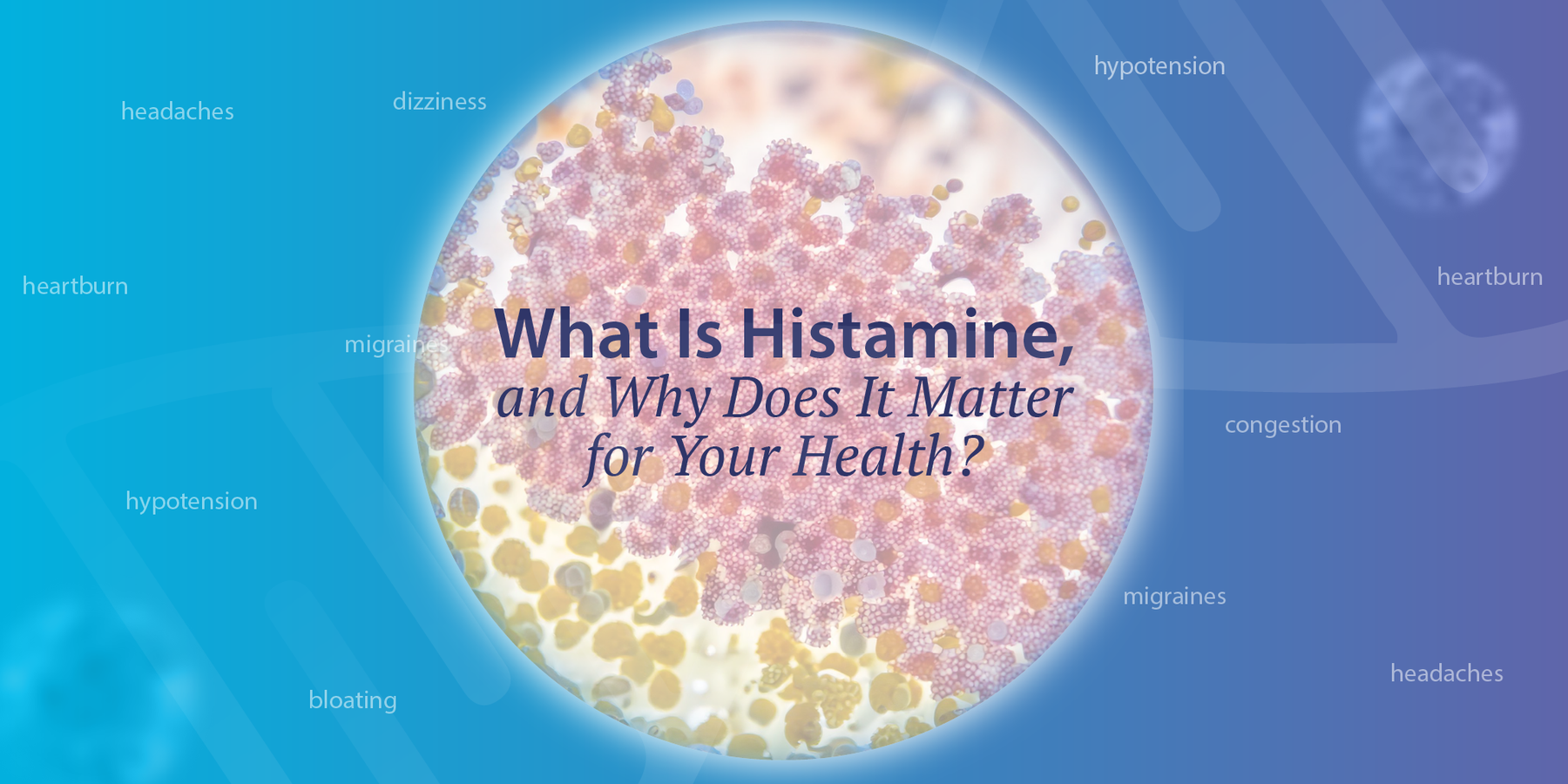
What Is Histamine, and Why Does It Matter for Your Health?
Understanding histamine sensitivity and what your genes can tell you about it.
You’ve probably heard the word “histamine” in connection with seasonal allergies or antihistamine medications—but did you know histamine plays a much bigger role in your overall health?
At MaxGen Labs, we help decode how your body processes histamine by looking at your genetics. This insight can help you better understand symptoms like headaches, fatigue, digestive issues, or skin reactions that may not seem connected—but actually are.
Let’s break it down.
What Is Histamine?
Histamine is a natural chemical made by your body. It acts like a messenger between your immune system, brain, and gut. It’s involved in things like:
- Fighting off allergens
- Helping with digestion
- Regulating your sleep-wake cycle
- Controlling your appetite and mood
Histamine becomes a problem when there’s too much of it, or your body can’t break it down properly.
What Happens When Histamine Builds Up?
If your body struggles to break histamine down, it can lead to something called histamine sensitivity or intolerance. This doesn’t mean you’re allergic to histamine—it means your system gets overwhelmed by it.
Common symptoms of histamine overload include:
- Headaches or migraines
- Digestive issues
- Fatigue or brain fog
- Anxiety
- Eczema
- Irregular menstrual cycles
- Nasal congestion
These symptoms can be confusing or misdiagnosed because they overlap with other conditions. That’s why understanding your genetic sensitivity is so helpful.
How Does MaxGen Help?
At MaxGen Labs, we test genes that affect how your body clears histamine, especially the ones that produce two key enzymes:
- DAO (Diamine Oxidase) – Works mostly in the gut, helping you break down histamine in food.
- HNMT (Histamine N-Methyltransferase) – Works inside your cells to help regulate histamine levels in your body.
If your genes show reduced activity in one or both of these enzymes, it may be harder for your body to break down extra histamine, which can lead to symptoms like headaches, stomach discomfort, or skin irritation.
- DAO helps clear histamine in your gut. If this enzyme is slowed down, you might react more to certain foods like wine, cheese, or smoked meats.
- HNMT works inside your cells and helps break down histamine in tissues. Low activity here has been linked to asthma and depends on healthy methylation to function properly.
Foods That Are High in Histamine
If you’re sensitive, certain foods may trigger symptoms. These include:
- Alcohol / Fermented drinks
- Citrus fruits, Dried fruits
- Smoked meats
- Aged cheese
- Walnuts, Cashews, Peanuts
- Spinach
- Eggplant
- Shellfish
- Bananas, Strawberries, Tomatoes
- Chocolate
- Food dyes, Food additives
What Can You Do?
If your MaxGen report shows a genetic tendency toward histamine sensitivity, there are a few simple steps you can take:
- Try a low-histamine diet for a few weeks and track symptoms.
- Focus on fresh, unprocessed foods.
- Avoid known triggers like alcohol, aged cheeses, and processed meats.
- Consider natural support like DAO supplements (under a healthcare provider’s guidance).
Knowledge Is Power
You don’t have to guess why your body reacts the way it does. Your genes hold answers—and MaxGen Labs helps you uncover them.
By understanding how your body processes histamine, you can make targeted lifestyle choices to feel better, think clearer, and support your long-term health.
Want to know if histamine could be behind your symptoms?
Explore our genetic testing kits or connect with a MaxGen practitioner today to learn more.